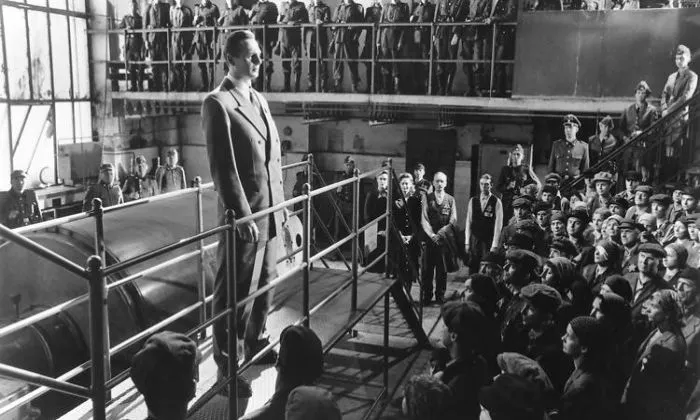Steven Spielberg’s “Schindler’s List” (1993) is a monumental achievement in filmmaking, recognized as one of the most powerful and important films ever made about the Holocaust. While the film received critical acclaim and won multiple awards, including seven Oscars, the production journey was marked by personal sacrifices, emotional challenges, and profound impacts on Spielberg’s life and career. In this article, we explore what Spielberg may have sacrificed or experienced during the making of “Schindler’s List.”
Emotional Toll
One of the most significant sacrifices Spielberg endured during the making of “Schindler’s List” was the emotional toll of immersing himself in the subject matter of the Holocaust. The director felt a deep sense of responsibility to honor the memory of Holocaust victims and survivors, leading him to confront the horrors of genocide on a visceral level.
Spielberg has spoken candidly about how making “Schindler’s List” affected him emotionally. The experience of filming scenes depicting mass atrocities and human suffering left a lasting impact, leading Spielberg to grapple with profound sadness and a sense of moral obligation to tell the story authentically.
Personal Connections
Spielberg’s personal connection to the material added another layer of complexity to the filmmaking process. As a Jewish filmmaker whose own relatives were affected by the Holocaust, Spielberg approached the project with a deep sense of reverence and personal investment.
The director’s commitment to authenticity and historical accuracy compelled him to undertake extensive research and consultation with Holocaust survivors and historians. This dedication to honoring the memory of those who perished required significant personal investment and emotional engagement.
Creative and Artistic Challenges
The production of “Schindler’s List” presented numerous creative and artistic challenges for Spielberg. The decision to film in black-and-white was a deliberate choice to evoke the documentary-like realism of historical footage, enhancing the film’s authenticity and emotional impact.
Spielberg’s meticulous attention to detail extended to every aspect of the production, from casting to set design to cinematography. The director’s pursuit of authenticity required extensive research and collaboration with experts, resulting in a film that is widely regarded for its historical accuracy and attention to detail.
Impact on Filmmaking Career
“Schindler’s List” marked a significant departure for Spielberg, who was primarily known for blockbuster films prior to its release. The decision to take on such a serious and emotionally challenging subject represented a shift in the director’s career trajectory, signaling a commitment to tackling important and socially relevant themes.
While “Schindler’s List” solidified Spielberg’s reputation as a master filmmaker, it also influenced his subsequent work and artistic evolution. The success of the film emboldened Spielberg to explore a wider range of subjects and genres, demonstrating his versatility as a storyteller.
Personal Reflections
In interviews, Spielberg has reflected on the profound impact of making “Schindler’s List” and the lasting legacy of the film. He has expressed gratitude for the opportunity to share this important story with audiences around the world, emphasizing the importance of remembrance and historical consciousness.
At the same time, Spielberg acknowledges the personal sacrifices and emotional challenges inherent in making a film of such gravity and magnitude. The experience of confronting the darkest chapter of human history left an indelible mark on the director, shaping his perspective and artistic vision in profound ways.
Conclusion
In conclusion, the making of “Schindler’s List” represented a deeply personal and transformative journey for Steven Spielberg, marked by emotional sacrifices, creative challenges, and profound impacts on his life and career. The director’s commitment to honoring the memory of Holocaust victims and survivors required a deep sense of responsibility and moral obligation, leading him to confront the emotional and historical complexities of the subject matter with sensitivity and integrity.
Despite the personal toll of immersing himself in the horrors of genocide, Spielberg’s dedication to authenticity and storytelling excellence resulted in a film that continues to resonate with audiences as a powerful testament to the enduring spirit of hope and resilience in the face of unspeakable evil. “Schindler’s List” stands as a testament to Spielberg’s artistic vision and moral conviction, underscoring the importance of confronting history with empathy and remembrance.
Related Topics:
Understanding the Main Point of “Schindler’s List”
The Symbolism of the Girl in the Red Coat in “Schindler’s List”
Ralph Fiennes: Portraying a New Kind of Evil in “Schindler’s List”

